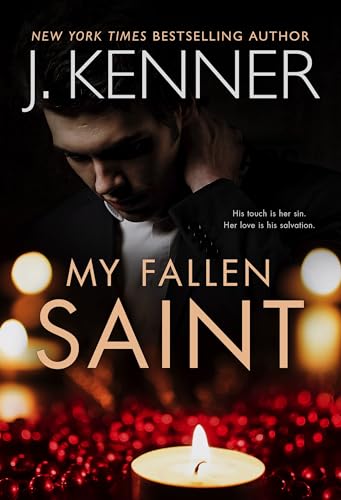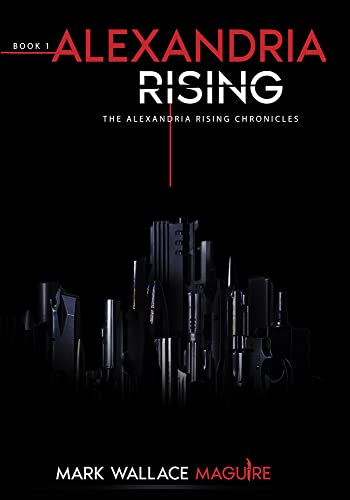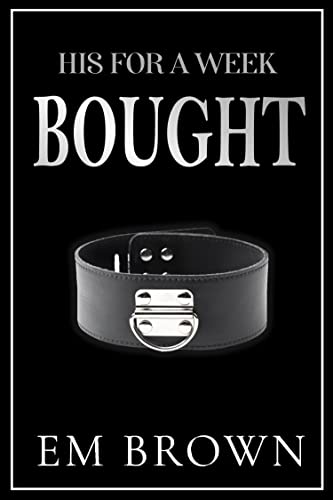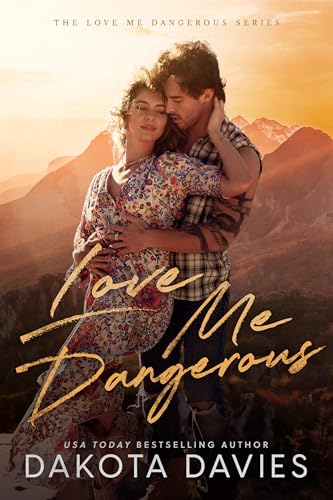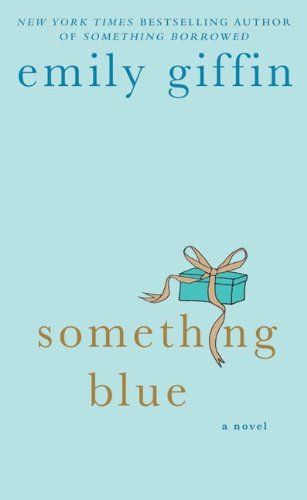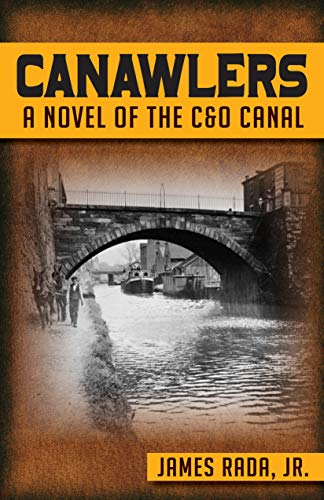Free Kindle Nation Shorts – February 14, 2011
An Excerpt from
SNAKE WALKERS
A Novel by J. Everett Prewitt
By Stephen Windwalker
Editor, Kindle Nation Daily
©Kindle Nation Daily 2011
Editor, Kindle Nation Daily
©Kindle Nation Daily 2011
In Africa, the Snake Walkers are a mythical tribe that teaches its children from birth how to walk th rough a nest of poisonous snakes without being bitten. In J. Everett Prewitt’s fictionalized Arkansas town of the early 1960s, the snakes are no less poisonous….
rough a nest of poisonous snakes without being bitten. In J. Everett Prewitt’s fictionalized Arkansas town of the early 1960s, the snakes are no less poisonous….
After the 2005 hardcover edition received unanimous critical acclaim, Kindle Nation is happy to announce that J. Everett Prewitt is celebrating the release of his novel Snake Walkers on Kindle with a generous free excerpt through our Free Kindle Nation Shorts program.
Here’s the set-up :
:
Traumatized as a child after witnessing a hanging, Anthony Andrews, the first black reporter at the Arkansas Sun, seeks to solve the mysterious abandonment of a small town and the disappearance of fourteen white men.
His investigation leads him from rural Arkansas to Cleveland, Ohio as he tries to uncover a family secret kept hidden for over a decade. The closer he gets to the truth, the more he must question his own motives.
His quest not only reveals the true identity of people he has met along the way, but also points Anthony toward a path that leads to his own salvation.
The Reviews:
Snake Walkers is a captivating book. –Midwest Book Review
Prewitt is a natural story teller. I was drawn right into the story. He captured my attention from the first paragraph. The plot carries with it all the elements of conflict, romance, and intrigue. The story unfolds a haunting theme of mystery. –Richard R. Blake, Vine Voice Top 1000 Reviewer.
“Snake Walkers is a fascinating read that revisits a horrific time in history where the lives of African Americans were tragically taken by those who wanted to suppress them.” –Books2Mention Magazine.
(Prewitt) develops complex characters and a fascinating mystery with historical roots. It is an engaging novel with insights to ponder. –-Small Press Review, July-August 2005, Kaye Bache-Snyder
SNAKE WALKERS is a dynamic work of fiction with a slow, deliberate pace that is reminiscent of Southern Life. The characters are well developed, colorful, flawed and each of them is transformed in the course of the story. The plot is full of twists and suspense; this adds an additional layer of richness to an already compelling work of historical fiction. –RAWSISTAZ Reviewers.
Everett writes with a great mastery of plot and characters capturing the attention of readers right from the riveting opening to the punding climax…This compelling page-turner marks the debut of an extremely promising new talent. –-BookWire Review
UK CUSTOMERS: Click on the title below to download
Free Kindle Nation Shorts – February 14, 2011
SNAKE WALKERS
A Novel by J. Everett Prewitt
Copyright © 2011 by J. Everett Prewitt and published here with his permission
I have given you authority over all the power of the enemy and you can walk among snake and scorpions and crush them. Nothing will injure you.
Luke 10:19
New Living Translation Bible
PROLOGUE
Late Summer, 1948
A farm outside Pine Bluff, Arkansas
The two thirteen-year-old cousins raced around the edges of the cornfield as the sun slowly moved across the horizon, changing from a fiery yellow to a burnt orange, signaling its pending departure. The smaller boy, a visitor at his cousin’s farm, and the faster of the two, stopped for the third time to wait for his playmate and to look across the rows of corn toward the woods.
“I’ve never been in any woods before,” the smaller one said.
“City boy,” the larger one said teasingly, “Almost grown and ain’t never been in no woods.”
The smaller boy looked once more toward the looming cluster of trees.
As if reading his mind, the larger boy, more seriously now, pointed toward the woods and whispered, “They’s hainted. You ain’t want to go there. Nobody go there. That’s where the ghost of dead people live.”
Anthony Andrews shrugged. “I still want to go. Will you tell?” he asked.
Joe Mathis hesitated, grimacing and shaking his head at his cousin’s bullheadedness. “Nah. I ain’t gonna tell.”
Without a second thought, Anthony started toward his destination, glancing back to see his cousin standing, arms folded, still shaking his head.
It took longer than he expected to reach the edge of the forest through the endless rows of corn. The trees that appeared so small in the distance loomed over him now like giant guardians to the entrance of some other world. Unfamiliar with his surroundings, he hesitated at the edge of the forest, listening, as Joe’s warning of a haunted woods echoed faintly in his head.
It didn’t take long for the adventurer in him to win out, though. So despite any misgivings, he entered, moving cautiously into the quiet darkness.
Where the cornfield he had just passed through was lively with the sounds of swishing stalks swaying in the wind, accompanied by the high-pitched cawing of crows, the even higher-pitched chirps of the woodland birds, and the faint, lowing of a distant cow, the woods were unlike anyplace he had ever been.
There was a dampness in the air that seemed to diminish any sounds of life, creating a quietness that settled like a blanket over the towering, majestic trees. Even the singing of the birds seemed muted.
Anthony stood still, his hands on his hips. It was as if he had entered another place in time.
Eventually he stepped carefully over the roots that snaked from the huge clustered trunks of the lofty oak trees and moved inward, entering an open area of red and yellow dahlias and black-eyed susans. He felt more at ease after seeing their bright colors and inhaling their light, breezy fragrance.
Hesitantly, he walked farther, past a thicket of brightly colored bushes, and found a group of smaller pear trees encircled by a blanket of flowers and shrubs. The place was like a beautiful painting. It was better by far than anywhere else he had ever visited. Anthony decided this would be his secret place, where he would come to be alone and surround himself with the magic the area possessed.
He walked deeper into the woods, through the trees, flowers, and bushes, marveling at the variety of shapes, colors, sounds, and smells. Occasionally he looked behind him so he wouldn’t get lost, but he had no intention of going back until he was satisfied he had seen everything. There was a small hill shaped like the letter L that overlooked a meadow. Anthony climbed it to get an even better look at his paradise.
A deeper shade of darkness descended through the trees. Although he knew it was time to leave, he remained, savoring his surroundings. I’ll go back in a little while, he thought as he lay on the ground, hands behind his head, looking up at the emerging stars.
He lingered as long as he possibly could before reluctantly rising, stretching his thin arms and legs to begin his descent. Before he could take his first step, though, he was stopped by the faint sound of men laughing that drifted through the stillness of the night. It startled, then upset him, that there were other people in his woods.
The moon had emerged, and played hide-and-seek, while the darkness made its home among the trees. He could barely make out a group of men with one small torch surrounding a smaller person at the far edge of the woods near a cluster of medium-sized trees. They were walking toward him. Some had what looked like big sticks or baseball bats, and one man had what looked like a rope. While the other men varied in size and shape, the man with the rope stood out. He was fat and squat-looking, and he reminded Anthony of a picture of an ogre he had seen in one of the books at the school library.
The men stopped near the base of the hill next to a smaller oak tree. Anthony watched as two of them held the person in the middle. The squat-looking man slung a rope over a branch. There was faint whining and sniffling coming from within the gathering. As the men shuffled around waiting for the man with the rope to finish, shards of light from the moon bathed the group in a dull, yellow hue. It made the white rope and the beige-colored baseball bats more visible.
Anthony counted nine men in the group, all dressed in overalls and boots as if they had just left their farms. They were white except for the person in the middle. Anthony could see him more clearly as additional light filtered through the trees. The face wasn’t familiar, but it was clear he was a colored boy, like him, and young, like him.
The strange noises were coming from the boy.
“Shut up, nigger, and quit your moaning,” a tall, pale-looking man growled.
Anthony froze.
“I ain’t do nothin’.”
A bat interrupted the boy’s plea. It hit him in the forehead. A short scream erupted from the young boy as his head snapped back from the vicious blow before he slumped. Two men on either side held him to keep him from falling to the ground. A knot as big as a baseball appeared almost instantly on his forehead.
Anthony shuddered and wiped a tear running down his cheek. The sound was the same one his friend Cal Harper’s bat had made when he had hit a homerun the week before.
“Goddammit, Junior. You almost hit me,” the taller of the men said.
“But I didn’t.”
The men laughed.
The boy looked around frantically, then froze. His gaze was fixed in Anthony’s direction, but he said nothing. Could he see me? Anthony thought as the boy continued to look toward the small hill where Anthony lay. Anthony wrung his hands in despair. He was only a boy himself.
The squat man pulled on both ends of the rope, inspecting the branch. “It’ll do,” he rasped in a deep, gravelly voice.
Anthony watched in disbelief as one of the men put the noose around the boy’s neck. Three of them grabbed the other end and began pulling the rope. The tree limb creaked from the additional weight.
As the body rose slowly from the ground, an eerie whine punctured the night air, causing the men pulling the rope to stop briefly before tying the end of the rope to a stump. Only a faint gurgling noise could be heard among the jeering laughter as the body, which at first jerked spasmodically, barely swung back and forth while the men stood admiring their handiwork. They then picked up their bats and started swatting at the hanging boy.
Chills rushed through Anthony’s body, and more tears poured down his face as the sound of the bats penetrated the darkness.
“You swing like a girl, Tyson,” a heavy-voiced man said.
“Oh yeah? Your momma don’t think so.”
In morbid fascination, Anthony wiped his eyes to look one more time.
“Watch this,” the tallest of men said as he swung with full force at the boy’s head.
Anthony began to tremble uncontrollably as the boy’s head snapped back again. There was another cracking sound. This time the young boy’s head fell to the side at an odd angle. What could have been blood dripped slowly from his dangling tongue, which had slipped out of his opened mouth and swung back and forth with the force of each blow.
He watched the men swat at the hanging target for what seemed like hours. The lifeless body began to sway again, creating the same creaking sounds as before, interrupted only by the men’s grunts of exertion. He watched as it slowly turned toward him. And for a brief moment, in less time than a heartbeat, one eye opened. It was almost like a blink, but in that terrifying moment, a moment where a fathomless dread flooded his body, the eye seemed to look straight at Anthony.
At first he couldn’t stand. His legs were so weak; Anthony feared he would have to stay there all night. He crawled on his hands and knees through the brush and down the other side of the hill until he felt his strength return. Unable to see clearly through teary eyes, he willed himself to run as fast as he could through the woods toward the farm.
He hurtled his thin body through the brush and trees, oblivious to the cuts and scratches from the branches that grabbed him at every step. Noise was of no concern to him now. Anthony’s thin legs pumped so fast that he fell headfirst down a brush-covered ditch. A flock of startled black birds cawed; their wings flapped angrily as they took flight.
The fall slowed him temporarily, but his feet never stopped moving until he reached the clearing where he could see the lights from his uncle Mathis’s house above the rows of corn that were now as still as the rest of the night.
His lungs were on fire as he fell exhausted on the ground. With his chest heaving from both fear and fatigue, Anthony looked back at the edge of the woods, terrified that the same men he watched hang and beat the boy would burst out of the woods and do the same to him.
The grunts and wet thuds made by the bats as they hit the bloodied, lifeless body followed him all the way back to the farm. He burst through the front door and through the house to the bedroom, acknowledging no one. “Where have you…Anthony?” His mother’s voice sounded alien and distant.
Bumping his knees on the bed he shared with Joe, he climbed in, shivering, with his clothes still on, pulling every blanket he could reach over himself.
Eventually, there was a quiet shuffle of bare feet as someone else entered the room. The bed sagged from the weight of another person as Anthony slid even farther under the covers.
“I told you,” Joe whispered.
PART I
Chapter 1
January 1961
Pine Bluff, Arkansas
At 5:30 A. M., the two runners had the track to themselves. It was an isolated area surrounding a grass-covered football field at the back of an old brick school. Anthony liked the track since few people used it. Because it was so secluded, there was minimal chance of human contact. That day, though, Anthony wanted company.
The air was brisk with no breeze and a temperature of around fifty-five degrees. The mist lifting from the ground made the men look ghostly. The crunch of their shoes hitting the red cinders was the only sound penetrating the morning stillness. Anthony, the slightly taller of the two, ran with an effortless gait. The shorter, huskier runner with the build of a running back labored as he ran to keep up.
“Anthony James Andrews, if you keep up this pace, you’re going to be running by yourself,” the shorter one said as he struggled to keep abreast.
“You’re the one who ran track in school,” Anthony chided his friend Chucky as they turned into the backstretch for the seventeenth lap.
“Yeah, but it was 440 yards, not the marathon,” Chucky said puffing, “and I wasn’t obsessed with it like you.”
Anthony and Charles “Chucky” Aaron White met when they first started elementary school. Their friendship grew on its own, unattended by words, like a cactus would grow unattended by water. Neither acknowledged their closeness in so many words, but both considered the other to be a best friend. Their friendship was the reason that when Anthony called, knowing that even though Chucky hated to run long distances, Chucky would come.
Their laugh, throaty but subdued, sounded like it came from the same person. In fact, there was little to distinguish the two except their height. Both twenty-six-year-olds would be considered attractive with dusky brown complexions, short hair, high cheekbones, and angular noses that stopped just short of the wider noses attributed to their African ancestors. Anthony, however, at six feet even was, two inches taller than Chucky.
A week ago, he was working at his father’s funeral home when they received the body of an old colored man who had been beaten to death outside the town of Wynne, Arkansas. After a glimpse at the naked corpse with its head bashed in on one side, a leg that lay at an awkward angle indicating it had been broken in more than one place, all but two of its fingers missing and a hole where the testicles used to be, Anthony experienced his first flashback in years.
It had been thirteen years since the incident in the woods. He had hoped the pain of it would disappear in time, but it hadn’t completely. It was still there, lurking in the shadows, waiting, like some gigantic, poisonous viper. At the beginning, during the most dreadful periods, Anthony felt that he was just within the serpent’s reach, and if it ever caught him, it would swallow him whole.
It was evident that time would not be his narcotic, so he ran. Running was redemptive. It cleaned and restored the natural order of things within him. The eye that constantly penetrated his dreams, the nightmares, the flashbacks, the nagging fear that something was behind him faded away, at least for a time. The pain of exhaustion temporarily replaced the pain of sadness and powerlessness, but even that dissipated until only the steady, rhythmic sound of his feet was left to propel his mind to a more peaceful place.
“Lost in thought?” Chucky asked, bringing Anthony back to the present as they slowed to a jog to cool down.
“I’m sorry, man. There’s a lot of stuff on my mind these days,” Anthony said.
“Whenever you want to unload, all you have to do is start talking,” Chucky said, tapping Anthony’s back in a show of support. “That’s what friends are for.”
“Thanks, man. I appreciate that.”
“Talking about friends, are we going to see you at Mo’s this Saturday?” Chucky asked. “When you don’t show, we have no choice but to talk about you. You need to be there to salvage your reputation,” he said, laughing and still trying to catch his breath.
Anthony laughed with him. “I plan on it.”
“Good. I’m going to get some coffee after I shower. You want to join me?” Chucky asked.
“No. I’m going to do some weights before I head to work.”
Chucky turned with raised eyebrows. “Weights? When did you start doing weights?”
“Just recently. Nothing heavy. Just a lot of repetitions.”
“For how long?”
“Another hour or so.”
Chucky shook his head. “Are you sure you aren’t overdoing it?”
“I – I just feel better when I’ve had a complete workout.”
Chucky raised his hands, palms up. “This wasn’t a complete workout?”
Anthony took a deep breath. “Not to me.”
Chucky looked at Anthony closely. “What’s going on man?”
“Everything’s okay, Chucky.”
Chucky continued to stare at Anthony. “How’s everything at the funeral home?” Chucky asked as they slowed to a walk.
Anthony shook his head slightly. “It’s fine, but it’s not what I want to do for the rest of my life.”
“The money’s good, isn’t it?” Chucky asked.
“It is, but my father and I don’t agree on a lot of things,” Anthony said as he thought about the old man who was beaten to death and the rift it caused between him and his father.
After Anthony saw the body, he had gone home that day shaking his head in disgust at the anguish it caused him and the weakness he felt because of it. As soon as he had entered his apartment, he retrieved the folded, yellowed piece of paper he had carried with him since he was a child. Before the woods, Anthony feared nothing. Now fear, though most times dormant, accompanied him everywhere he went. It scared him most that he wasn’t in control.
Aunt Ida, his father’s sister who passed four years earlier, used to always say, “The devil knockin” when she began to feel “strange.” Anthony didn’t realize the significance of her statement until years later when she was sent to a home for the mentally unstable.
Years had passed since the devil had knocked on Anthony’s door, but it had come, pounding away, that day he saw the old man’s body. And like a reopened wound, the memories of Emmanuel came too. Anthony had named the boy he saw in the woods in his mind because it wasn’t right that he didn’t have a name. The helplessness he felt as he watched them put a noose around Emmanuel’s neck tormented him all over again.
He had stayed in his apartment for two sleepless weeks, walking the floor, and hardly eating because he knew he would throw it up. His mother called every day. His father called once, to find out when he would return to work.
After the second weekend away from the job, his mother had insisted Anthony come to the house for dinner. It was only the second time during that two-week period that he had left the apartment.
“Randall!”
Anthony had been startled more by his mother’s response than his father’s statement. “What do you mean, Dad?”
“You see a dead man, and you take off for two weeks? How can I depend on you if I have to worry about you running off again?”
Anthony had shaken his head slightly. His father hadn’t understood. He couldn’t have understood. “Maybe you’re right. Maybe I’m not cut out for this business.”
“Anthony! Your father is just upset right now. Don’t make it any worse.”
A half smile had crossed Anthony’s face for a brief second. “Dad’s right, Mom, as always, but for the wrong reasons.”
His father’s face had darkened as he looked at Anthony closely. “So what’s the reason? What’s the reason I have to almost turn down customers because my son, who would eventually inherit one of the most profitable businesses in this town , can’t stand the sight of a dead body?” Anthony’s father looked at him in disdain before shaking his head. “And for the life of me, I fail to understand why you even agonize over some nigger that probably had it coming anyway.”
Anthony had stood then, speaking louder than he ever had to his father. “Because he’s a human being Dad, and no one should have been treated like he was.” Anthony’s voice lowered. “And if you can’t understand that, Dad, then I’m not going to try to explain it to you.”
“What I do understand is that I raised a son to follow in my footsteps, but he can’t take it,” his father had said as he slammed his palm on the table.
A need to fight back had coursed through Anthony’s veins and settled somewhere near the front of his brain. He couldn’t tell then if the sudden headache was from anger or fear, but he couldn’t show anger. Anger meant you had lost control. He couldn’t show fear either, because he was the cub, and the wolf was tougher, and if you cower, the wolf wins.
The wolf and the cub. That was their relationship in a nutshell. How could a father like that understand? All he was concerned with was being right at all costs, running his funeral business and making money. Nothing else counted.
Just a few months ago, Anthony recalled a conversation between his dad and a few of his friends after reading the headline in the Arkansas Sun, which blared, “King in North Carolina.” The article lamented that Dr. Martin Luther King, Jr., was involved in a sit-in at Woolworth’s lunch counter, stirring up people unnecessarily. Anthony had read the same article with interest because for some time, racial tension had been on the rise, and southern states like Arkansas were feeling the pressure. America was feeling the pressure.
A journalist in a New York once wrote, “Race relationships in the South have always been covered by a thin veneer of southern decorum. Peel the skin off, though, and what you find is an unspoken contract between blacks and whites that governs every aspect of their lives.”
Anthony agreed, but in the past few years, he noticed that the assigned roles and established relationships were slowly beginning to unravel as more and more Negroes joined the chorus of voices seeking change.
Attitudes were shifting-or maybe hardening was a better description. Resentments that had simmered just below the surface now erupted like bubbles in the belly of a lava-pregnant mountain-one, then another, bursting, subsiding, then multiplying in numbers, until it finally overflowed.
The festering rage over the death of young black men like Emmett Till, the discord over Rosa Parks and her refusal to move to the back of the bus, the integration of the schools, and the general turmoil created by Dr. King and his people ignited a slow but steadily growing fire in the South as well as the North. Even among colored folks though, it wasn’t a heat that everyone welcomed, especially in his household.
“That damned King!” Randall grumbled that day in the parlor. “Rabble rousers like him are destroying the very fabric of the South that allows so many of us to obtain a good living. The lowlife and rebellious few that are causing all the trouble should get off the streets, stop complaining, work harder, and achieve. Then there would be no reason to march and cause trouble.”
Anthony tried to understand his father’s anxiety, but he couldn’t. Randall Andrews had expressed the same concern when the nine children integrated Central High. “Uppity Negroes. A colored school isn’t good enough for them?” But Anthony had to admire those kids and others like them who felt so strongly about Negro rights that they would risk their lives for it.
The results of this unrest, though, were the same as if one were to hit a hornet’s nest with a stick. Acts of violence against Negroes increased, and tension was so thick you could almost touch it.
There were times during that period when Anthony almost felt compelled to join the quest for rights and freedom, but he was torn. He was torn between his sense of justice for all, the agony of his past, and his own pursuits. In the end, he opted to take the path of personal gain. There were many reasons. Some he couldn’t formulate. But at that moment in his life, he decided that if he were to accomplish his lifelong dream of becoming a reporter, he would have to focus. Nothing was more important.
Anthony sighed. He often wondered why his dad and mom ever married. Randall Andrews was rigid and a constant complainer who was always railing against something. If it wasn’t the poor niggers trying to get burial services for little or nothing, it was the outsiders coming in and causing trouble with the white man. Mildred Andrews, on the other hand, was a quiet, gentle woman who never raised her voice and who listened more than she talked. Whatever peace there was in the house was because of her.
Anthony had more of his mother’s characteristics than his father’s.
***
Anthony glanced at Chucky. He wasn’t comfortable sharing his problem with his friends. They all looked up to him. They would be disappointed knowing that a dead body had caused him so much distress. It was a burden he would have to bear by himself, and a problem he would have to solve by himself.
They stopped their walk as Chucky turned to look at Anthony and nodded knowingly. “I can understand you having problems with your dad.” He laughed. “I would imagine that anybody who worked for Mr. Andrews would. ‘We’re the upper echelon of Negro society,’ ” Chucky mimicked.
Anthony smiled. “Yeah, they even started calling themselves the ‘Echelons’ until someone told them that the name sounded like some singing group from Detroit.” His smile faded. “You know. I try to please him, but he’s convinced that Andrews Funeral Home is my future. I went to school to become a journalist, and that’s what I intend to do,” Anthony said resolutely. “For some reason, my father doesn’t believe I can do it.”
“Well, there’s the Arkansas State Press down here. There’s a colored paper in Mississippi, and I believe there’s one in Tennessee. If you want to go north, there’s the Chicago Defender, the Pittsburgh Courier, the Call & Post in Cleveland…” Chucky hesitated. “There are some more that don’t come to mind right now. Which papers would you want to work for?”

